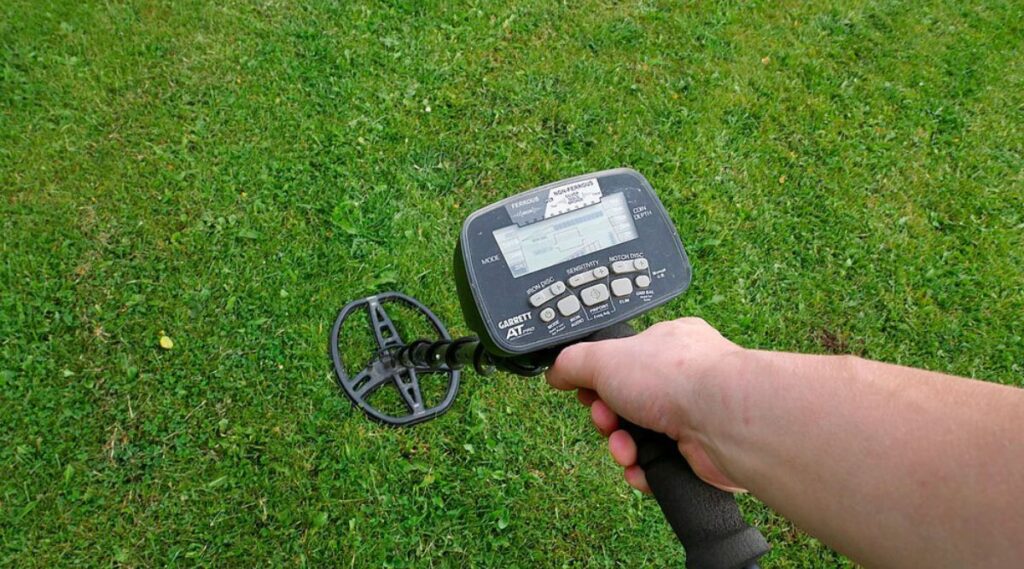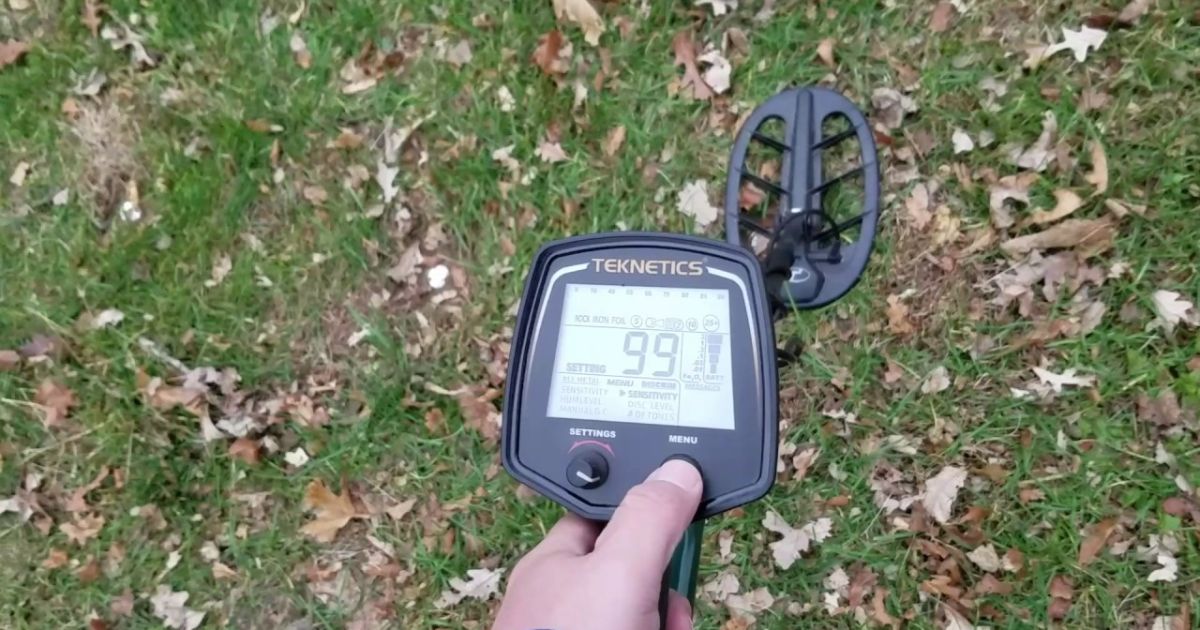A metal detector is a device that uses electromagnetic fields to locate metal objects. It consists of a coil that emits signals and a control unit that analyses the signals’ reflections. When metal is detected, the device produces an audible or visual alert.
Curious about the fascinating world of metal detection? Ever wondered, Can steel be detected by a metal detector? Brace yourself for an eye-opening exploration! Discover the science behind these ingenious devices and unravel the mystery of their capability to spot steel. Ready to embark on a journey of detection? Grab a metal detector and let’s uncover the secrets hidden beneath the surface.
Yes, steel can be detected by a metal detector. Metal detectors operate by generating electromagnetic fields that interact with metallic objects, including steel. When the detector senses the presence of steel, it produces a signal or alert, making it a valuable tool in various fields like security, construction, and treasure hunting.
Can Metal Detectors Detect Aluminum
While many metal detectors can identify common metals such as gold, silver, and copper, detecting aluminum presents unique challenges. Aluminum is nonferrous, meaning it does not perturb magnetic fields as strongly as iron. Thus, aluminum’s low conductivity makes it more difficult for metal detectors to identify than better conductors.
But, newer detectors with advanced technology have shown the ability to detect aluminum up close, especially if it is above ground rather than buried. For best results, a metal detector with an adjustable setting for conductivity can be optimized for a weak aluminum signal by experiment. With the right machine and technique, dedicated users can learn to detect this elusive metal.
The Science Behind Steel Detection
Metal detectors operate on the principle of electromagnetic induction. When the coil of a metal detector is energized, it generates an electromagnetic field. As the detector is swept over an area, this field interacts with any metallic objects present. Steel, being a ferrous metal, responds to the electromagnetic field by inducing a current within itself. The detector senses this change and alerts the user, signaling the presence of steel.
Understanding the science behind steel detection is crucial for optimising the performance of metal detectors. Factors such as the type of metal, its composition, and the detector’s sensitivity play vital roles in accurately identifying and signalling the presence of steel. This knowledge is not only valuable for hobbyists engaged in treasure hunting but also for professionals in fields like security and construction. Metal Detectors Work by generating an alternating magnetic field. When this magnetic field passes through metallic objects, eddy currents are induced within the metals. These eddy currents create their own magnetic fields which can be detected by the metal detector. Different metals alter the detector’s magnetic field in unique ways, allowing the detector to discriminate between items like jewelry and foil.
Practical Applications
Practical applications of metal detectors extend across various industries, showcasing their versatility and importance. In the realm of security, these devices play a crucial role in identifying potential threats by detecting metal objects on individuals, ensuring public safety in airports, stadiums, and other high-traffic areas.
Moreover, metal detectors find a fascinating application in treasure hunting and archaeology. Enthusiasts and professionals alike utilise these devices to unearth hidden artefacts, coins, and valuable historical items buried beneath the earth’s surface. The practicality of metal detectors in these diverse fields underscores their significance in safeguarding, construction, and uncovering the mysteries of our past.
Factors Affecting Steel Detection
Efficient steel detection is influenced by several key factors. One crucial aspect is the sensitivity of the metal detector, determining its ability to detect smaller or deeply buried steel objects. Environmental conditions also play a role, as factors like soil composition and moisture levels can impact the detector’s performance.
To enhance steel detection capabilities, it’s essential to stay mindful of these factors and regularly calibrate the metal detector accordingly. Users should be aware of the surrounding conditions and fine tune sensitivity settings to adapt to different environments. By understanding and addressing these factors, metal detector enthusiasts, security personnel, and professionals in various fields can maximise the effectiveness of steel detection.
Tips for Efficient Steel Detection

Efficient steel detection requires a combination of proper techniques and understanding your metal detector’s capabilities. Begin by familiarising yourself with the specific settings and sensitivity levels of your device. Adjust the settings based on the environment you’re in, considering factors like soil composition and interference from other metals.
It’s crucial to pay attention to the audio and visual cues your metal detector provides. Familiarise yourself with the signals that indicate the presence of steel, and practice discriminating between different types of metals. Regularly calibrate your metal detector to ensure optimal performance. Lastly, patient and persistent successful steel detection often involves thorough and systematic scanning, especially in areas with high metal clutter.
Proper Handling of Metal Detectors
Proper handling of metal detectors is crucial for optimal performance. Begin by familiarising yourself with the device’s manual to understand its features and settings. Hold the metal detector with a steady grip and maintain a consistent and slow sweeping motion over the target area. Pay attention to any signals or alerts and adjust sensitivity settings accordingly. Common Mistakes to Avoid
Significance in Diverse Fields
The significance of metal detectors extends across diverse fields, playing a pivotal role in ensuring safety, security, and exploration. In the realm of security, these devices are indispensable, aiding in the detection of concealed metallic objects in public spaces. In construction and industry, metal detectors are essential for preventing equipment damage caused by hidden metal debris.
Future Prospects
The future prospects of metal detection technology hold exciting possibilities. Ongoing advancements in sensor capabilities, artificial intelligence integration, and miniaturization are poised to make metal detectors even more versatile and efficient. From enhanced sensitivity to the development of portable and user-friendly models, the future promises a new era of precision and convenience in metal detection.
Choosing the Optimal Metal Detector for Locating Stainless Steel
Choosing the Optimal Metal Detector for Locating Stainless Steel here are a few keys:
- Consider a metal detector with advanced VCO (voltage controlled oscillator) technology. VCO detectors are best able to distinguish stainless steel from minerals in the ground due to their ability to identify changes in metal composition.
- Look for a detector with a wide range of ground balance and discrimination settings. Adjustable settings allow the user to fine-tune the detector specifically for stainless steel, reducing false signals from other metals.
- A higher frequency metal detector, in the 15-22kHz range, will perform better for finding stainless steel than lower frequency models. Higher frequency helps overcome ground mineralization for greater depth and pinpoint accuracy.
- Multiple coil sizes options provide advantages for different situations. Smaller coils enable pinpointing, while larger coils detect deeper but with less precision.
- Waterproof design is necessary for finding submerged stainless steel. IPX8 rated detectors can be submerged in water while maintaining functions.
- Prioritize a detector with user reviews confirming capability with stainless steel. Trying different machines allows comparison of features optimized for this challenging-to-detect metal.
FAQ,S
What metal can not be detected by metal detectors?
Non-ferrous metals, such as aluminium, brass, and copper, are generally more challenging for standard metal detectors to detect.
Will steel make a metal detector go off?
Yes, steel will make a metal detector go off. Metal detectors are designed to detect the presence of metallic objects, including steel, by responding to changes in the electromagnetic field caused by the metal.
What metal sets off metal detectors?
Metal detectors are primarily triggered by the presence of conductive metals, such as iron, nickel, aluminium, copper, and gold.
Conclusion
In conclusion, metal detectors play a pivotal role in various aspects of our lives, from ensuring security to uncovering hidden treasures and archaeological artefacts. The simplicity of their operating principles, based on electromagnetic field interactions, makes them effective tools for detecting a range of metals, including steel.
Looking ahead, the future of metal detection technology appears promising, with ongoing innovations in sensor technology and artificial intelligence. These advancements hold the potential for even greater precision and adaptability, further expanding the utility of metal detectors. Whether in enhancing security measures, contributing to scientific discoveries, or aiding in everyday tasks.











